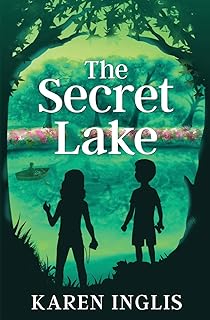


Outdated Teaching Practices Impacting Children’s Reading Achievement in 2025
Despite advances in educational research and accessible technologies, a considerable number of children still struggle to develop essential reading skills due to outdated teaching methods prevalent in many schools. Recent studies reveal that traditional approaches, which often ignore evidence-based reading instruction, hinder effective literacy development.
- Systematic phonics instruction is undervalued despite strong scientific support.
- Teachers frequently rely on whole language approaches that do not foster decoding skills.
- Many curricula have not incorporated recent insights from cognitive science regarding reading comprehension.
- Insufficient teacher training on modern reading methodologies results in inconsistent quality.
- Socioeconomic disparities exacerbate access to up-to-date educational resources.
Schools and educators must adapt swiftly to these research-driven recommendations to support students’ literacy success better. Resources from early reading development can empower parents and teachers in addressing these challenges.
The Significance of Evidence-Based Reading Models
Modern reading instruction emphasizes systematic phonics, vocabulary building, and comprehension strategies, supported by decades of cognitive and educational research. However, many schools still implement methods like the ‘whole language’ approach that inadequately address foundational skills.
- Explicit phonic teaching: Teaches children letter-sound relationships methodically.
- Fluency training: Focuses on reading speed and accuracy through guided practice.
- Comprehension strategies: Encourages active engagement, prediction, and summarization.
- Assessment-driven instruction: Uses data to tailor teaching to individual needs.
Programs such as Reading Eggs and Hooked on Phonics exemplify practical applications of these approaches, demonstrating measurable improvements in children’s reading progression.
Challenges in Teacher Preparation and Instructional Materials
A pivotal barrier to modernizing reading education lies in inconsistent or outdated teacher preparation programs. For example, some educator training institutions continue to emphasize disproven instructional models, leaving new teachers ill-equipped to tackle literacy gaps effectively.
- Variability in teacher training: Differences in curricula lead to uneven expertise across regions.
- Lack of ongoing professional development: Educators often lack access to up-to-date workshops or resources.
- Dependence on legacy textbooks: Materials from publishers like Scholastic or Houghton Mifflin Harcourt may not fully reflect the latest research.
- Insufficient integration of technology: Digital tools and personalized learning platforms such as Raz-Kids and ABCmouse remain underutilized.
- Resource shortages in underfunded schools: Impair consistent implementation of best practices.
Addressing these challenges may involve strategic partnerships and policy reforms, such as those observed in initiatives like California’s youth academic opportunity programs.
Bridging the Gap with Innovative Educational Tools and Community Engagement
To overcome obstacles posed by outdated methods, schools, parents, and communities are increasingly turning to interactive and proven educational products. For instance, Kumon provides structured skill-building while LeapFrog offers engaging digital content for early literacy development.
- Personalized learning apps: Adapt to each child’s pace and style.
- Collaborative reading programs: Promote peer engagement and motivation.
- Access to diverse literature: Through platforms like Barnes & Noble, encouraging reading for pleasure.
- After-school support: Reinforces skills via supervised homework and tutoring.
- Parent education: Equipping families with tools to support reading at home.
Communities can explore opportunities similar to those discussed in children’s education franchises and after-school safety programs to strengthen overall literacy ecosystems.


